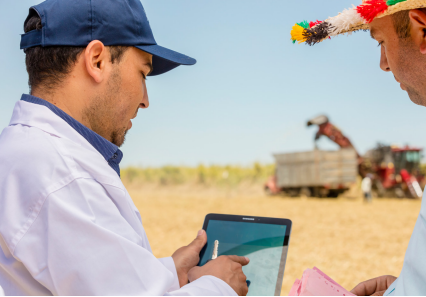Conseil d’Administration de FIMASUCRE à Casablanca
Conseil d’Administration de FIMASUCRE à Casablanca

The Moroccan sugar sector holds a strategic place in the country's economy. The sector has benefited for important investment that has led, in an integrated framework, to the development of the local sugar production, currently covering about 50% of the country's needs. With its potential, the Moroccan sugar sector generates 1,500 direct and 3,000 indirect jobs, 5 million working days per year in agricultural activity and provides income for 80,000 sugar beet and sugar cane growers.
On the agricultural side, Morocco is one of the few countries that produces sugar from sugar beet and sugar cane, in addition to the refining. The agricultural areas of sugar beet and sugar cane represent respectively 60,000 ha and 20,000 ha and it involves 80,000 farmers in 5 irrigated areas: Doukkala, Tadla, Gharb, Loukkos and Moulouya. Annual production is around 4 million tons of sugar beet and nearly 1 million ton of sugar cane. The sector has benefited from an important investment program of nearly 1 billion $USD for technological upgrades and capacity increase. Industrial processing is carried in 8 industrial units grouped together with a daily processing capacity of 43,000 tons of sugar beet and 7,000 tons of sugar cane per day. These industrial infrastructures produce about 600,000 tons of white sugar from sugar plants covering about 50% of the country's national needs. The overall production capacity including the refining activity is 1.65 million tons, which exceeds the national needs of 1.2 million tons and exports refined white sugar to over 40 countries in the world.
The performance achieved by the sugar sector shows the results of the efforts made by all the stakeholders of the sector, particularly in terms of R&D for the development of the technical management of sugar crops. In fact, the sugar yield of sugar beet has progressed from 7.5 t/ha to 12 t/ha and for sugar cane, the sugar yield has reached 9 t/ha. The mechanization of sugar crops has boosted the performance: the generalization of mechanical seeding, a rate of 75% for hoeing and mechanical treatment and 50% for mechanical harvesting.
In order to strengthen the consultation and coordination framework, to increase national productivity and ensure the sustainability of this activity, the sugar sector has implemented major regulatory and organizational reforms. In June 2007, by creating of the Moroccan Interprofessional Federation of Sugar (FIMASUCRE), which became a model for the development of the agricultural interprofessions within the Green Morocco Plan, it is became the first agricultural interprofession to obtain official recognition of the government. It brings together all the players of the agricultural and industrial sugar sector, namely the Professional Sugar Association (APS), which represents the four sugar companies of the COSUMAR Group, as well as the National Union of Regional Associations of Sugar Producers (UNAPPSM) which represents the Regional Associations of Sugar Producers in the five irrigated regions.
The sector follows a sustainable societal responsibility approach that creates values for the ecosystem with the 3P concept, namely "People, Planet, Prosperity". This triptych calls for all actions to be dedicated to all stakeholders and for all activities in the sector to be conducted with a low impact on the environment. Finally, the creation and distribution of wealth must be in line with the CSR commitment of the sugar industry. All investments are aimed at safeguarding the environment, reducing energy consumption and saving water, which has reduced the carbon footprint of the industry by 44% in ten years.
In the quest for innovation and modernization of its agricultural activity, FIMASUCRE has started since the beginning of October 2017 a new Information System called "ATTAISSIR". It is a harmonized, integrated and evolving Information System that covers all agricultural upstream business processes.
This new Information System launched in June 2018 makes it possible to strengthen agronomic monitoring by the agricultural advisors of 80 000 farmers, to modernize the monitoring of the upstream agricultural performance through a complete digitization of the relationship with the 80 000 farmers and geo-tracking of the activities in the fields. This system provides integrated support for the following main activities:
It should be noted that since the implementation of this Information System, the farmers have strongly adhered to this new digital system, which will certainly contribute to the continuous improvement of the performance of upstream agricultural of the Moroccan sugar sector.